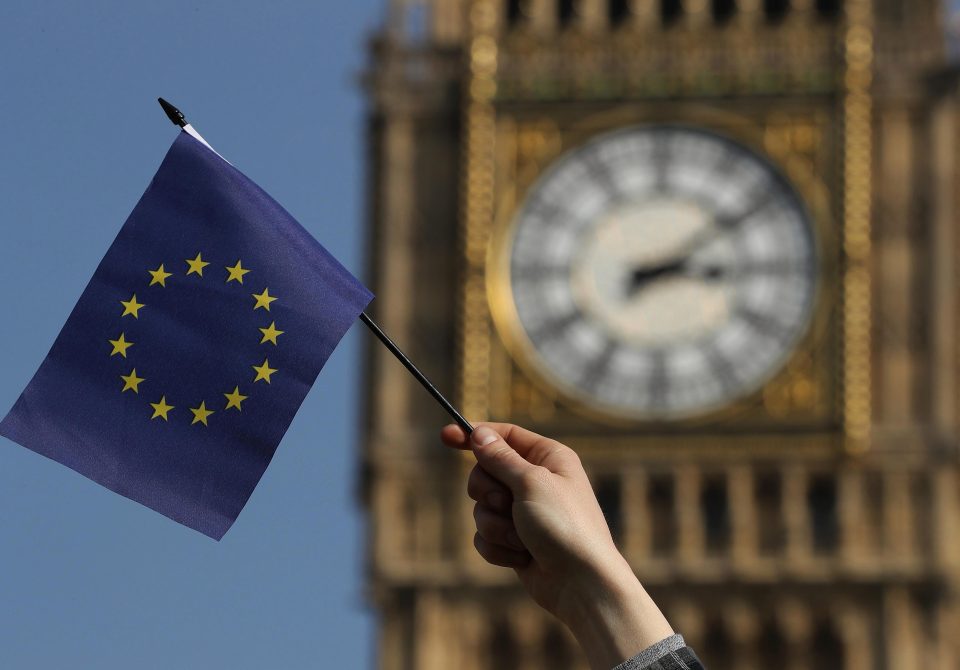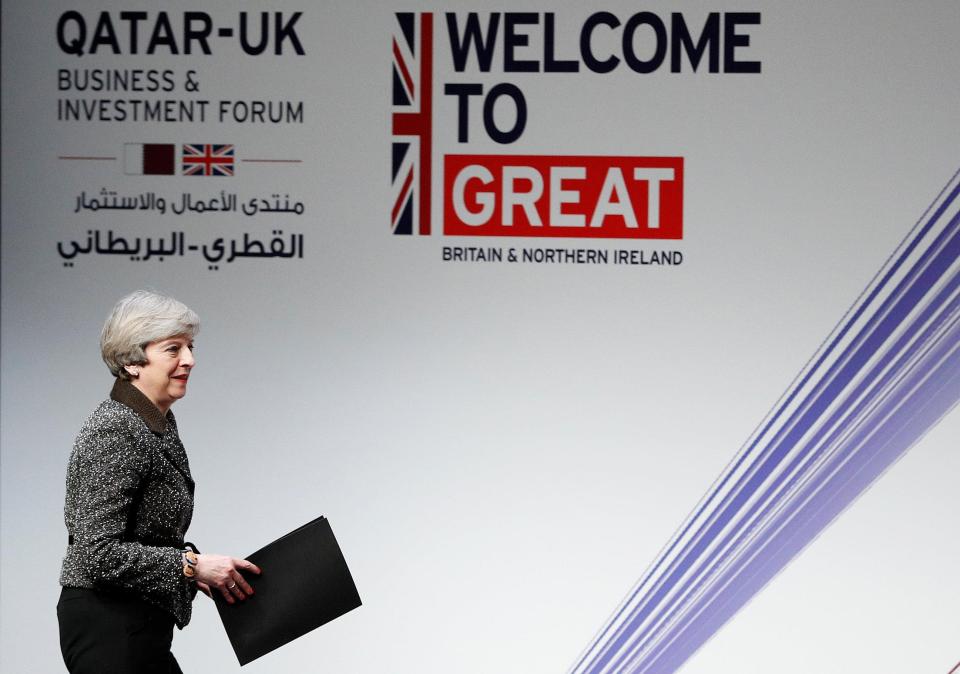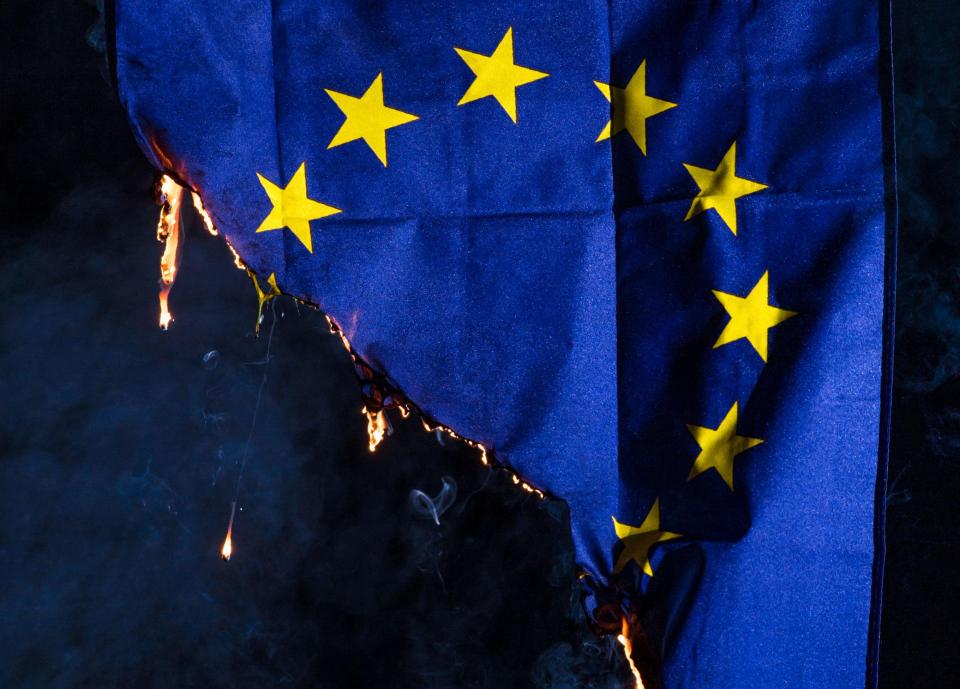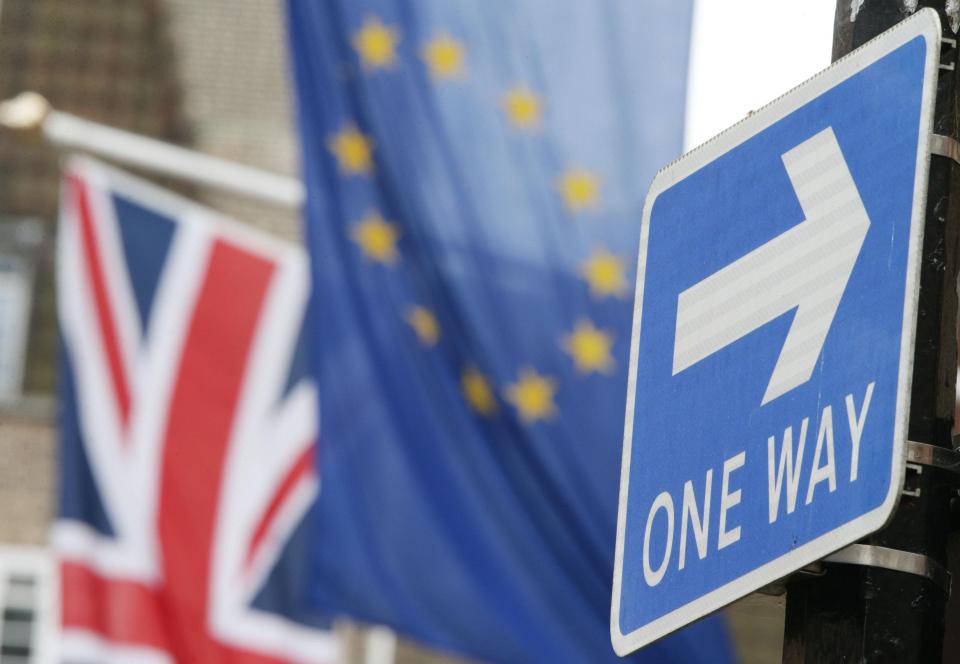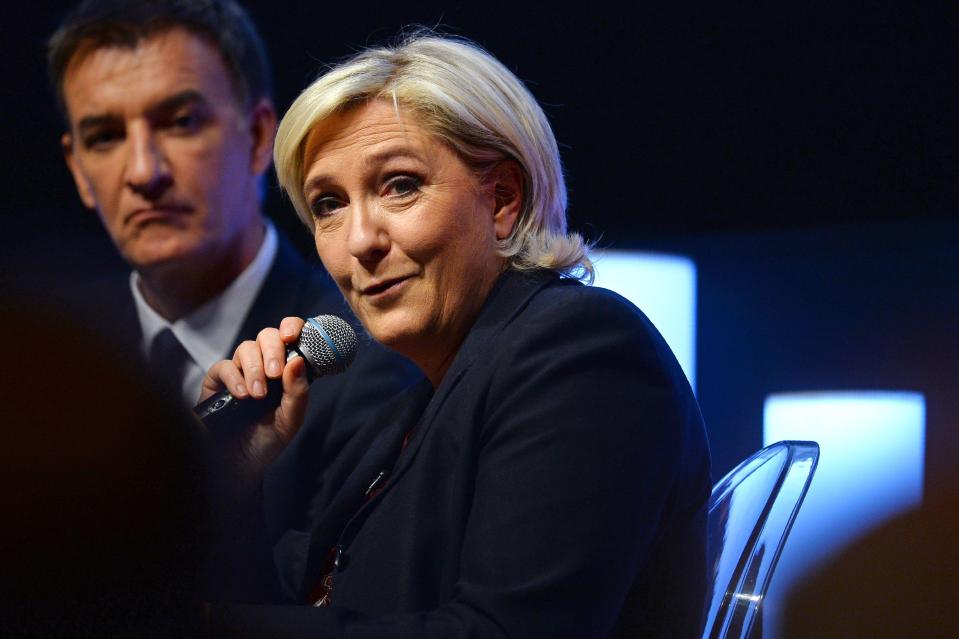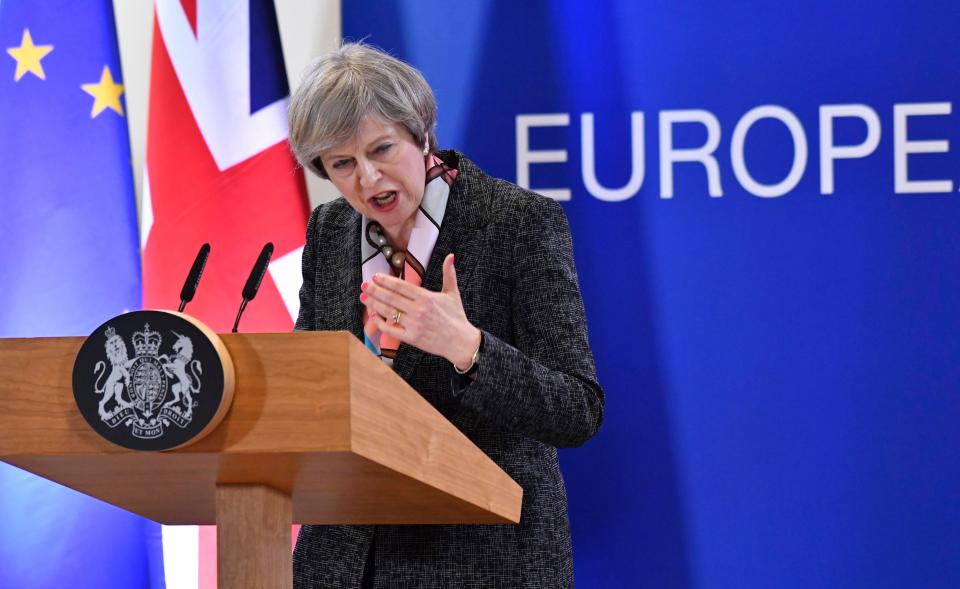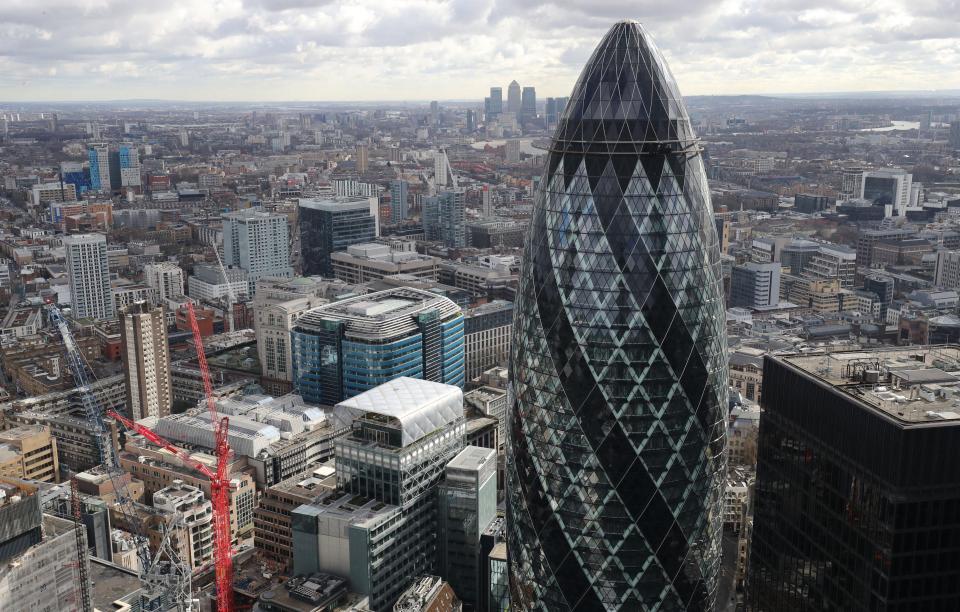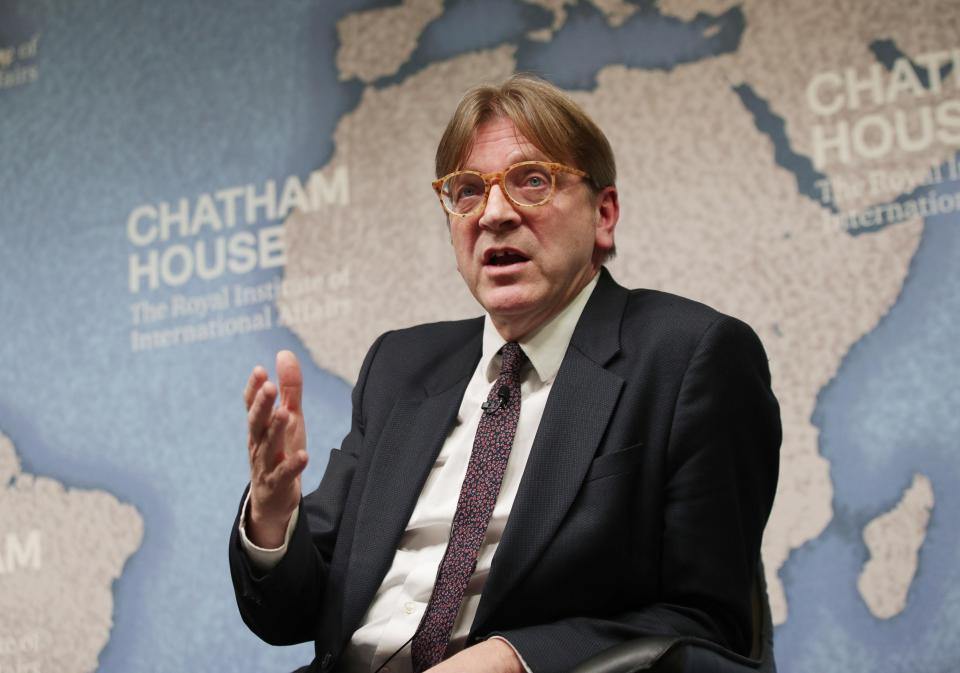TIME TO MAY-KE HISTORY
Article 50: What happens next? Everything you need to know now Theresa May has finally kickstarted Brexit today
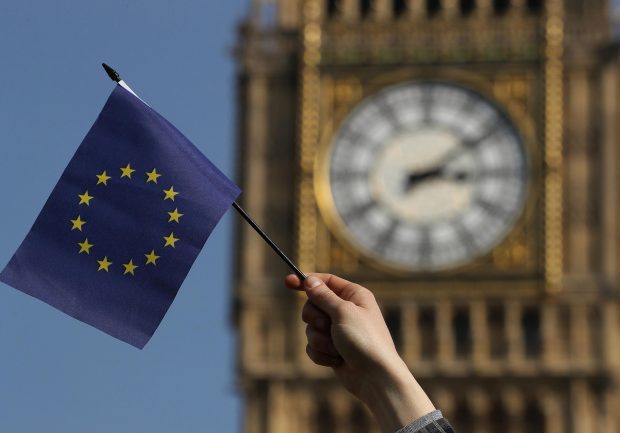
THERESA May has sent a letter which triggered the start of our EU exit, nine months after the historic referendum vote.
The six-page missive from the Prime Minister has been handed to Brussels today and begins a two-year countdown - at the end of which we must leave the other 27 nations behind.
But how exactly will our EU departure work? How will the other nations react? And will we get a trade deal at the end of?
Here is our handy guide to what happens next with Brexit:
What exactly is Article 50 and how do you trigger it?
- The letter from Mrs May has been sent to the European Council, notifying it of our intention to leave.
- This is under the legal mechanism for a country to quit; Article 50 of the Treaty on European Union, otherwise known as the Lisbon Treaty, signed in 2009.
- Donald Tusk confirmed he received the letter in a press conference. Now the EU "shall negotiate and conclude an agreement with that State, setting out the arrangements for its withdrawal, taking account of the framework for its future relationship with the Union".
Will the UK still be in the EU?
- Yes, despite today's landmark moment, we will remain members of the EU for up to two years, the time allocated for any deal to be reached with the other members.
- And if all the other nations agree, the deadline could be extended – if for example they have failed to thrash out the free trade deal sought by the PM.
- However that seems unlikely, as both sides appear to favour ending the process without a deal rather than remaining in negotiating limbo.
MOST READ IN POLITICS
What happens next?
- In the next 48 hours the European Commission is expected to issue "draft negotiation guidelines", which will be sent to the 27 remaining states for consultation.
- Back home the Government will on Thursday publish a so-called ‘White Paper’ on the proposed Great Repeal Bill - the legislation that will turn more than 40 years of EU regulations into domestic laws.
- It will allow the UK to be sovereign on almost all matters, but there has been criticism of the potential use of ‘Henry VIII’ powers to achieve it, as opposition parties argue it fails to allow for proper Parliamentary scrutiny of the new laws.
How will the EU react?
- EU Council President Donald Tusk said that it was a sad day for the European Union. The front pages around Europe were filled with the news this morning.
- German Chancellor Angela Merkel says Germany and other EU member states did not want UK to leave but they "respect British voters' decision".
- But French President Francois Hollande came out all guns blazing as he declared Brexit “will be painful for the British”.
- German Foreign Minister Sigmar Gabriel says "let's stay friends" should be a motto for the negotiators
- Denmark's prime minister says Britain's "goodbye" to the European Union is "incredibly sad," adding he expects "many bumps on the road."
- Having received guidance, the remaining 27 states will hold an extraordinary European Council summit on April 29, a month on from Article 50, to agree a mandate for their chief negotiator Michel Barnier.
- The European Parliament will also debate and vote on its "red lines" for any deal, clearing the way for talks to begin in earnest in May.
- The first issue for the UK will be trying to get the rest of the countries to agree to hold divorce and trade discussions at the same time, rather than one after the other, which could slow down out exit.
What does the EU want from the talks?
- There have been contradictory comments about how the UK should be treated, with the French alleged to be plotting to punish us for voting for Brexit – while senior figures like Jean-Claude Juncker have warned against tying to hobble Britain.
- But he and others have insisted we pay a so-called "divorce bill" of as much as €60 billion, which the European Commission say is needed to cover spending commitments Britain has already signed up to, as well as its share of the cost of pensions for EU officials.
- It is set to be a major sticking point at the start of the talks, along with the second major issue – which is whether EU nationals living in the UK can stay, and the same for Brits living on the continent.
What are the other major issues?
- Once the initial stuff is out of the way the nitty gritty of any deal with be trade, with Theresa May saying we must leave the single market and the EU customs union, while at the same time ministers have said they want to replicate as closely as possible Britain's existing trade relations.
- But in today's letter to Donald Tusk, Mrs May warned the EU that security co-operation could be weakened if no deal was reached. She urged leaders to "avoid that outcome".
- Brexit talks could prove a difficult balancing act, but ministers will hope the other countries will eventually realise it is in their interest to keep unfettered access to UK markets. However, much will depend on what sort of deal is agreed on EU migration, with pressure on Mrs May to end freedom of movement.
- Other issues will be what happens to the City of London, along with agriculture, fisheries, the Open Skies policy on airlines – and what happens at the only land border with the EU, where Northern Ireland meet the Republic.
What are the potential roadblocks in the way of a Brexit deal?
- On May 7 a new president will be elected in France, and a victory for the National Front's Marine le Pen could spell disaster for the EU as she also wants to quit the trading bloc.
- Similarly German federal elections in September could see Angela Merkel ousted as Chancellor by former European Parliament president and staunch federalist Martin Schulz.
- On the home front the agitation by Nicola Sturgeon to hold a second Scottish independence referendum, along with instability in Northern Ireland, could distract the PM from getting the job done in Brussels.
What is the timetable for the talks?
- Intensive negotiations are expected to continue through the summer, with successive "rounds" of talks expected to take place well into 2018, as teams of negotiators from each side gather for several days at a time to cover various issues.
- October 2018 is the target date Mr Barnier has set for concluding withdrawal negotiations, in order to allow time for them to be ratified by the other members before the end of the two-year deadline.
- The PM has promised Parliament will get a say before finally the European Parliament votes on the deal, which all needs to be concluded by March 29, 2019, when the UK officially ceases to be an EU member.
What happens if no deal is agreed?
- If no agreement is reached, and the Article 50 timetable is not extended, then the UK would crash out of the EU and be forced to trade under World Trade Organisation tariffs.
- Some analysts have said this outcome would be ‘disastrous’ for the economy by potentially placing barriers between the UK and its biggest export market across the channel, while others like Sir James Dyson are optimistic about such a scenario.
- Theresa May's letter warned today that security co-operation could be at risk if no arrangement is reached.
- The other option is to sign a "transitional deal", which is where the UK and the EU agree to some aspects, but we keep paying in to the EU budget and agreeing to the rules of membership, while we come to a full agreement later on.
Who are the key players?
- For the UK the Brexit Secretary David Davis will lead the negotiations alongside Mrs May, who will be he lives up to his reputation as a "charming bastard" – a staunch Eurosceptic but with the ability to win people round to his argument.
- Other major players are Sir Tim Barrow, Britain's relatively new ambassador to the EU, whose job will be to provide intel on the other 27 nations, and Boris Johnson – who will be expected to reign in some of his more loose comments and charm his European counterparts.
- For the EU Donald Tusk, recently re-elected as the European Council president, will be key and is expected to be a more reasonable adversary than Michel Barnier, the "hardball" European Commission chief negotiator, and the outspoken Guy Verhofstadt, the European Parliament’s chief negotiator.
Topics


